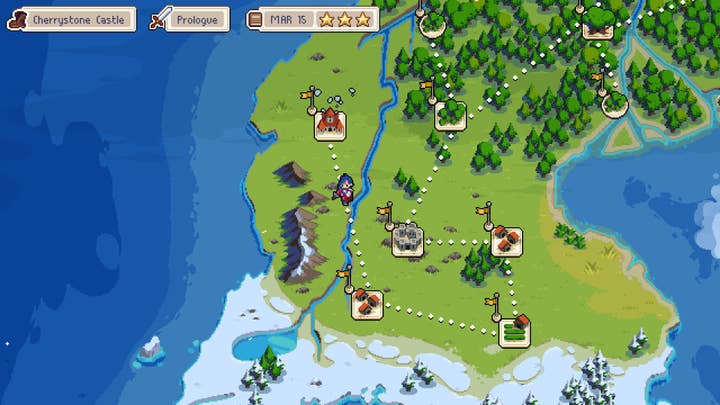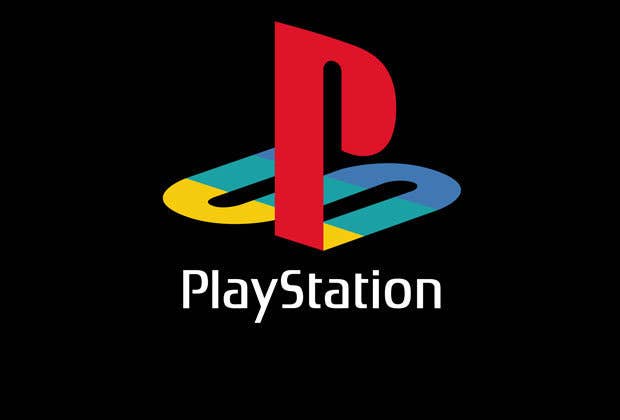Stubbornness over cross-play reminds us of bad old Sony | Opinion
After opening up cross-play for major titles, Sony is now dragging its feet -- putting smaller developers at a disadvantage and confusing its consumers
For all that Sony has done right in this console generation -- and it's done a hell of a lot right overall -- it is still prone to occasional blind-spots; moments when the pro-consumer, pro-developer attitudes it has worked so hard to cultivate around the PlayStation 4 slip, and we see a glimpse that reminds us how bad Sony once was at maintaining those relationships.
The ongoing mess around cross-play functionality on PS4 -- which would allow PlayStation players to enjoy multiplayer games with friends on PC, Xbox or Switch -- is a textbook example; a flash of Sony's old stubbornness has turned this molehill into a mountain, risking souring the company's image among game creators and players alike.
The substance of the issue is that after refusing to enable cross-play for a very long time (citing some hazily defined concerns over player experience), Sony finally caved last autumn and allowed cross-play to be implemented in Fortnite. This was likely a response to the out-sized popularity of that game, which was cross-play enabled across almost all other systems, making PS4 into the odd man out at a pretty commercially important party.
"Sony's hand was forced by the unusual success of Fortnite, and it still seems to be unhappy with the whole affair"
Last month it enabled cross-play for another major online title on PS4, Rocket League. In theory, this should mean that the gates are now open for developers to allow people to play across platforms. In practice, though, Sony appears to be dragging its feet -- its hand was forced by the unusual success of Fortnite, and it still seems to be fairly unhappy with the whole affair. Smaller developers have now begun to publicly air their grievances with the firm for refusing to let them enable the cross-play functionality that's been made available to the likes of Epic Games and Psyonix.
Look, it's not hard to put yourself in Sony's shoes and see why it's grumpy about cross-play in general. The PS4 is far and away the most successful console of the generation (and likely to end up as the most successful console in history by the end of its run), and therefore it gains a certain competitive advantage by keeping online gaming within its own closed system. Most people who want to play games with their friends will find that those friends are playing on PS4, so they'll also need to get into the PS4 ecosystem in order to join in.
Opening up to allow Xbox, PC or Switch owners to play with their PS4-owning friends is actually handing over this competitive advantage to Microsoft and Nintendo for little return; removing a pretty major barrier that would otherwise be pushing consumers to buy and play on PS4. Moreover, Sony is unlikely to have forgotten just how much Microsoft pumped that precise competitive advantage when the boot was on the other foot in the previous generation. If you wanted to play games with friends back then, you needed to buy the Xbox 360 version since that's where everyone played online, and Microsoft never missed an opportunity to drive that advantage home.
"The reality is that while cross-play does give away a competitive advantage for Sony, it's not a particularly significant one"
However, there's more to operating a console platform than just seizing every competitive advantage going -- as Sony ought to have learned from its past experiences. Maintaining the image of the company and the platform in the eyes of developers and consumers and carefully managing those relationships is also a big part of the job, and Sony has made huge efforts to improve on those fronts since the nadir of its relationships with both of those constituencies in the early years of the PlayStation 3. The reality is that while cross-play does give away a competitive advantage for Sony, it's not a particularly significant one. Unlike the previous generation, the company is not fighting tooth and nail for every console sale with a closely matched competitor.
PlayStation 4 dominates the console landscape utterly, and it is the default choice for most people choosing a new gaming platform. Sony recognised the ridiculousness of trying to create a walled-off community of Fortnite players on PS4, who were separated from everyone else playing the game. It now needs to follow this logic to its conclusion and recognise that, if that approach doesn't work for the world's biggest online game, there's really not that much value in doing it for everything else.

Moreover, keeping artificial walls in place under these circumstances may follow a certain commercial logic, but it's a move that's distinctly anti-consumer and anti-developer. For consumers, it creates confusion; why should I be able to play Fortnite or Rocket League with friends, but they can't join me in other games we'd like to play together? The consumer can't reasonably be expected to predict which games Sony's opaque decision-making processes have chosen to bless with this functionality - it stands to reason that it should work in any game that's available across different console platforms and consumers have every right to be annoyed if it doesn't.
"The creators of more niche products stand to be significantly impacted by Sony's reticence"
For developers, the situation is worse still; in granting permission to a couple of major games to use this feature while denying it to others, Sony has effectively created a completely uneven playing field for game creators with absolutely no justification beyond its own stubborn self-interest.
This is exacerbated by the fact that the games being denied access to cross-play are primarily titles with smaller player-bases -- meaning that cross-play would actually be far more valuable and meaningful functionality for them, making it significantly easier for players to find opponents and enjoy the games properly. While Fortnite's players would have been disadvantaged if cross-play wasn't enabled, they would still easily have been able to join full games through matchmaking, and it wouldn't have made very much difference at all to Epic Games. The creators of more niche products stand to be significantly impacted by Sony's reticence, as the simple arithmetic of player numbers means that cross-play could be a notable improvement to the online experience for many of those titles.
This is not, of course, the kind of issue that sinks the reputation of a company like Sony or a console like the PS4 -- but it's an example of the kind of easily avoided but poorly managed screw-up that, left unchecked, can start to seriously pile up against the public image of a company. The PS3 didn't get knocked down by any single mistake, and nor did Xbox One; with each console we can point to individual incidents that damaged public perception (be it PS3's price-point and the accompanying arrogance, or Xbox One's disastrous early focus on TV functionality), but the overall market performance in each case was more like the death of a thousand cuts, reflecting not a single miscalculation but a company whose attitudes, structures and management were intrinsically incapable of correctly judging or reacting to situations as they arose.
I don't for a moment think that Sony is there yet, but as the company reflects on what went wrong with the PS3 and how it put it right with the PS4 -- as Shawn Layden did at the DICE Summit this week -- it might also take some time to ask whether there are still things it's doing that come across as being more "PS3 Sony" than "PS4 Sony".
Hubris isn't something you defeat once. Modesty and humility are easy when you've just been knocked down, and harder to maintain when you're on top. If Sony's attitudes to cross-play reflect an internal sense that smaller developers are less important or consumer experiences must be secondary to minor market advantage, those are attitudes Sony needs to be vigilant about as it lays its plans for what comes next.

